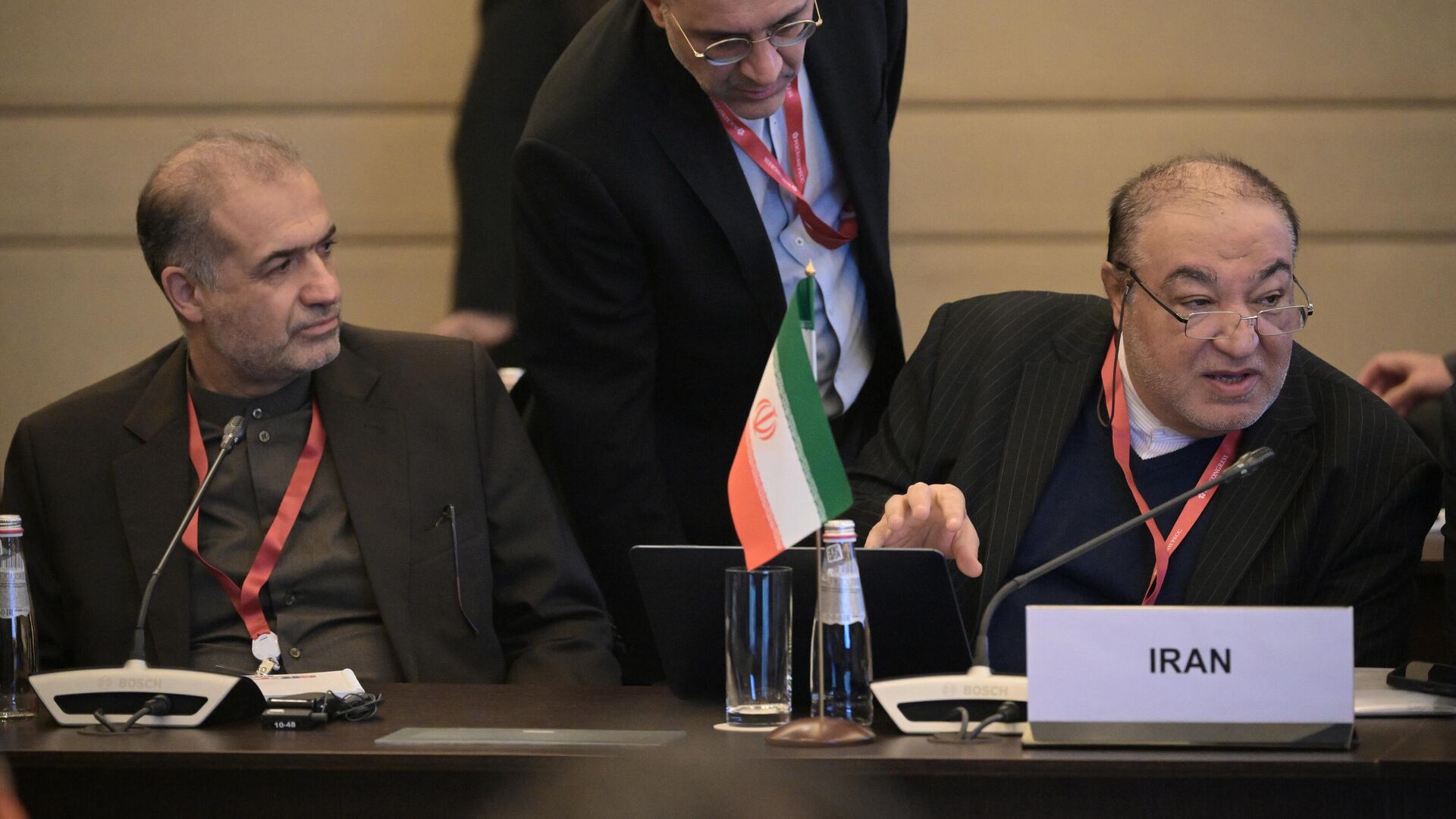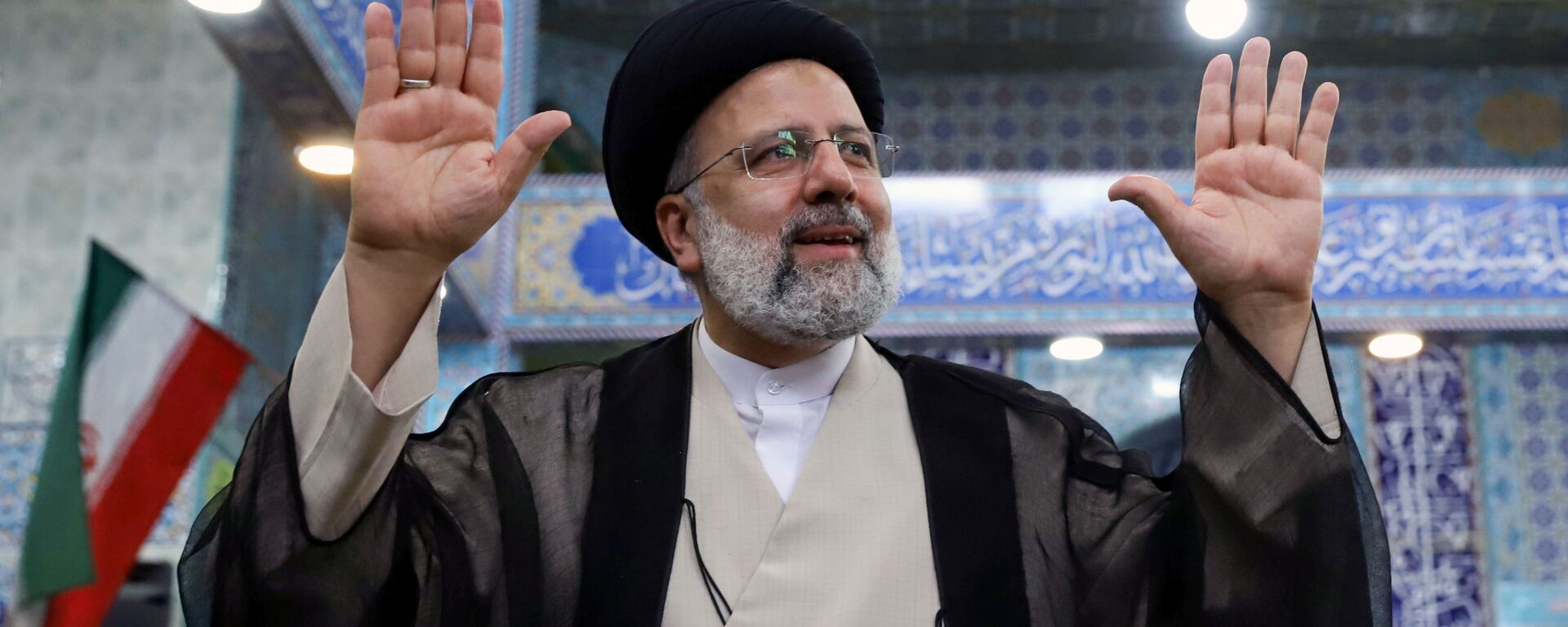https://en.sputniknews.africa/20240522/irans-brics-membership-a-platform-for-scientific-cooperation-knowledge-sharing-under-sanctions-1066681000.html
Iran's BRICS Membership: A Platform for Scientific Cooperation, Knowledge Sharing Under Sanctions
Iran's BRICS Membership: A Platform for Scientific Cooperation, Knowledge Sharing Under Sanctions
Sputnik Africa
BRICS was founded in 2009 as a cooperation platform for the world's largest emerging economies. Initially, the bloc included Brazil, Russia, India, China and... 22.05.2024, Sputnik Africa
2024-05-22T17:27+0200
2024-05-22T17:27+0200
2024-05-22T17:27+0200
opinion
iran
moscow
brics
brics expansion
brics plus
science
cooperation
middle east
international
https://cdn1.img.sputniknews.africa/img/07e8/05/16/1066681838_0:320:3072:2048_1920x0_80_0_0_48366ea899fdac0e401cf1a703898777.jpg
Iran's BRICS membership marks a significant step in the country's global strategy, with the potential to enhance scientific cooperation and knowledge sharing, especially in the face of ongoing Western sanctions, according to Dr. Behrouz Abtahi, Director of International Scientific Cooperation at Iran's Shahid Beheshti University.In an interview with Sputnik Africa on the sidelines of the BRICS Academic Forum, which is being held in Moscow on May 22-24, Dr. Abtahi highlighted the importance of BRICS membership for Iran's scientific community.Dr. Abtahi, a professor of marine biotechnology, believes that active participation in the BRICS framework will facilitate the expansion of Iran's scientific cooperation with friendly nations and regional partners.The scientist went on to discuss Iran's remarkable resilience in the face of decades of sanctions. He stressed that despite these economic and political pressures, Iran has emerged as a scientific powerhouse, ranking among the top 10% of countries in terms of scientific and technological advancement.The Shahid Beheshti University professor added, "We think that we can share experiences in independent working and independent scientific fields".
https://en.sputniknews.africa/20240520/late-president-raisis-legacy-charting-a-new-path-for-irans-economic-sovereignty-1066651373.html
iran
moscow
middle east
Sputnik Africa
feedback@sputniknews.com
+74956456601
MIA „Rossiya Segodnya“
2024
Muhammad Nooh Osman
https://cdn1.img.sputniknews.africa/img/07e7/04/0a/1058467512_0:0:1280:1280_100x100_80_0_0_ec723833bcbfcaed2e21952965ad99e4.jpg
Muhammad Nooh Osman
https://cdn1.img.sputniknews.africa/img/07e7/04/0a/1058467512_0:0:1280:1280_100x100_80_0_0_ec723833bcbfcaed2e21952965ad99e4.jpg
News
en_EN
Sputnik Africa
feedback@sputniknews.com
+74956456601
MIA „Rossiya Segodnya“
Sputnik Africa
feedback@sputniknews.com
+74956456601
MIA „Rossiya Segodnya“
Muhammad Nooh Osman
https://cdn1.img.sputniknews.africa/img/07e7/04/0a/1058467512_0:0:1280:1280_100x100_80_0_0_ec723833bcbfcaed2e21952965ad99e4.jpg
iran, moscow, brics, brics expansion, brics plus, science, cooperation, middle east, international, sanctions
iran, moscow, brics, brics expansion, brics plus, science, cooperation, middle east, international, sanctions
Iran's BRICS Membership: A Platform for Scientific Cooperation, Knowledge Sharing Under Sanctions
Muhammad Nooh Osman
Writer/Editor
BRICS was founded in 2009 as a cooperation platform for the world's largest emerging economies. Initially, the bloc included Brazil, Russia, India, China and South Africa. Last summer, its leaders invited Iran, Egypt, Ethiopia, the United Arab Emirates and Saudi Arabia to join the economic grouping as full members from January 2024.
Iran's BRICS membership marks a significant step in the country's global strategy, with the potential to enhance scientific cooperation and knowledge sharing, especially in the face of ongoing Western
sanctions, according to
Dr. Behrouz Abtahi, Director of International Scientific Cooperation at Iran's Shahid Beheshti University.In an interview with Sputnik Africa on the sidelines of the BRICS Academic Forum, which is being held in Moscow on May 22-24, Dr. Abtahi highlighted the importance of BRICS membership for Iran's scientific community.
"We are starting to organize the cooperation and collaboration of all universities in the BRICS network, BRICS University Network," he said. "We have many plans to firstly engage in direct BRICS activities."
Dr. Abtahi, a professor of marine biotechnology, believes that active participation in the BRICS framework will facilitate the expansion of Iran's scientific cooperation with friendly nations and regional partners.
"We think that these activities can improve and can help us to expand our network of collaboration with friendly countries and regional countries, especially on global challenges, global scientific and technological challenges in the near future," he added.
The scientist went on to discuss Iran's remarkable resilience in the face of decades of sanctions. He stressed that despite these economic and political
pressures, Iran has emerged as a scientific powerhouse, ranking among the top 10% of countries in terms of scientific and technological advancement.
"We've been facing sanctions for 44 years, and we've adapted to work in this situation," Dr. Abtahi stated. "We have many technical universities that work on many high-level technologies," he explained.
The Shahid Beheshti University professor added, "We think that we can share experiences in independent working and independent scientific fields".
"Independence means that we can make our networks with friend countries, with specialists. I think we have some experience in this field," he concluded.



